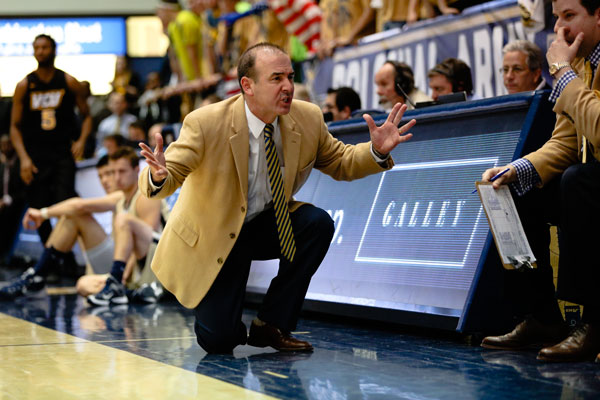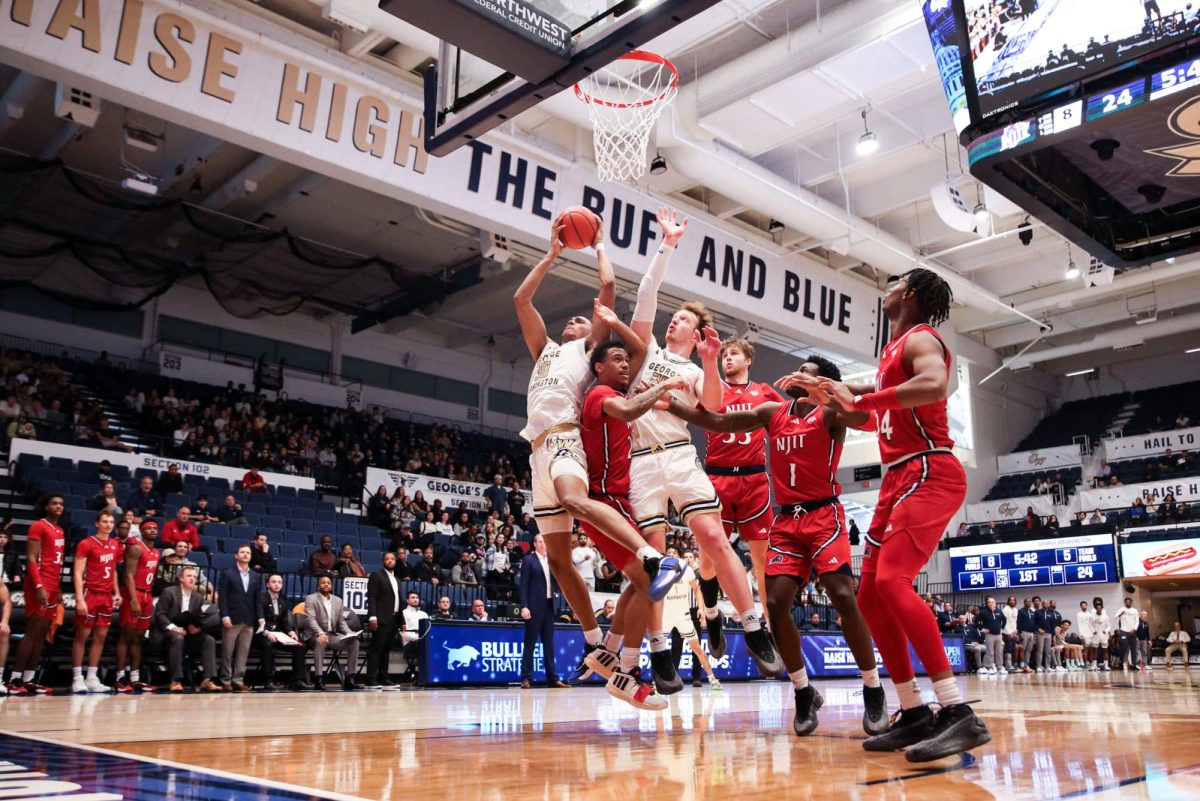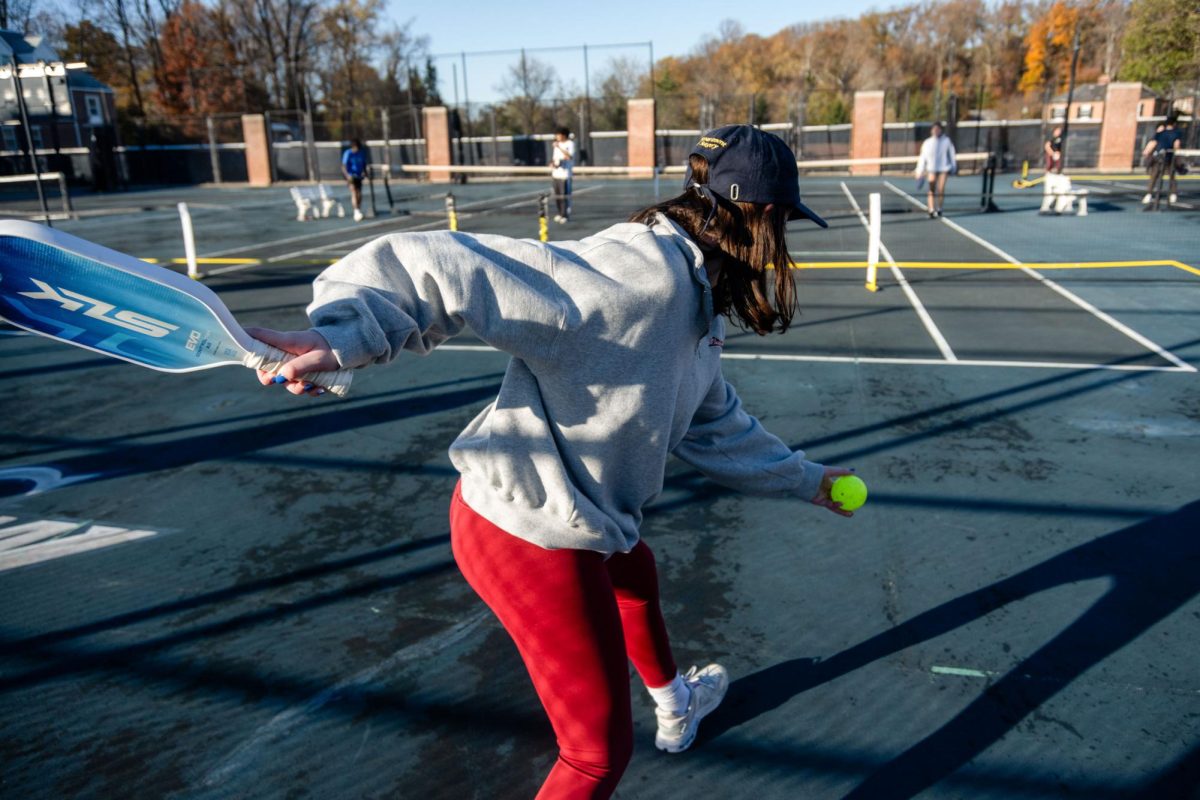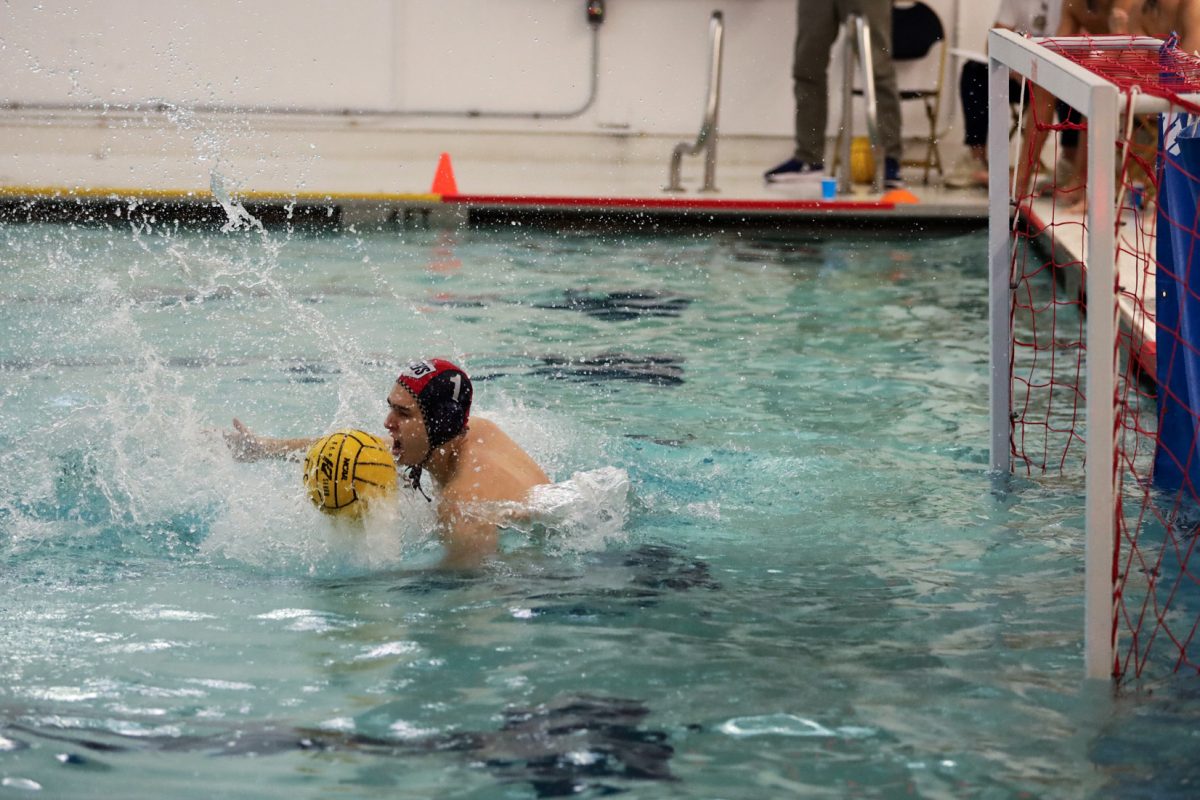In its 69–65 loss to VCU Saturday afternoon, the team’s sixth in conference play this season, men’s basketball allowed sophomore guard Jonathan Williams to rack up a career-high 17 points.
Williams, who also had a team-high five assists, averages 3.6 points per game. But as GW focused on shutting down high-profile scorers like Melvin Johnson and JeQuan Lewis, Williams was able to exploit the Colonials’ lack of complete team defense.
“To see a non-shooter just destroy us, that was disappointing. We didn’t do what we were supposed to do and I take the blame for that and I give [Williams] credit, but to see him continuously get to the rim, that’s a team thing,” head coach Mike Lonergan said. “That’s why [VCU] won the game, it wasn’t just the missed layups, it was really our lack of team defense.”
“They were basically daring me to attack,” Williams told the Richmond-Times Dispatch.
The Rams’ Jordan Burgess, who averaged a quiet 5.1 points per game entering Saturday, also burned the home team with 14 points and a game-winning corner-three.
The problem with lapses in team defense, however, is not a new one for GW this season. In fact, its third defeat at the Smith Center this year highlighted inconsistencies the team has grappled with on that end for much of this campaign.
While GW (21‒8, 10‒6 A-10) has proven it has the capability to shut down dangerous programs in wins over Virginia, Seton Hall and even VCU earlier this season, when all five Colonials on the court are not working for each other, it’s been difficult to stop more skilled teams with multiple offensive threats.
“We played really good defense and had a three-game winning streak and today was probably our worst performance since the Richmond game [at the Smith Center],” Lonergan said Saturday. “To look down the stats again and see a team shoot 55.6 percent in the second half that’s – I mean we’ve got some guys who are really committed now but we’ve got a couple guys who take plays off and that’s really hurt us.”
The hiccups have materialized in a handful of pivotal league clashes, many of which GW has dropped.
Against Richmond at home on Feb. 13 for example, while the Colonials were focused on keeping leading scorers Terry Allen and T.J. Cline at bay, the Spiders’ Marshall Wood, who went 7-for-8 from three-point range, and Khwan Fore combined for 40 points off the bench.
Following that double-overtime decision, redshirt junior forward Tyler Cavanaugh, as he did following the VCU loss, said leaving men open, even only on a few crucial plays, was the difference.
McDonald also explained the impact of those defensive slip-ups on GW’s offense after the Richmond loss, which was uncannily similar to the VCU loss in which the Rams led for more than 37 minutes. He said it was commendable that the Colonials were able to get back into those games, but that it’s hard to keep “digging yourself out of that hole when you get yourself down like that.”
With a bench that lacks depth, which Lonergan was quick to mention again after Saturday’s loss, fatigue and focus may also be playing a role in declining defensive strength.
In every A-10 loss this season except at Dayton, GW has allowed its opponent to shoot a significantly stronger clip from the field in the second half. In four of those six, the Colonials’ have allowed their opponent to shoot 55 percent or higher in the second half, and against Saint Joseph’s on Feb. 10, as high at 64.3 percent.
While players like graduate student guard Alex Mitola, who led the bench with six points on Saturday, sophomore Paul Jorgensen and junior Matt Hart have provided some sparks offensively, none have proven that they have the size or strength to consistently make a difference in front of their own basket.
If GW wants to win out the final two games of the regular season and make a deep run in the Atlantic 10 Tournament, which may be its final hope at reaching the Big Dance in March, every Colonial will need to be focused defensively, not just a few.







